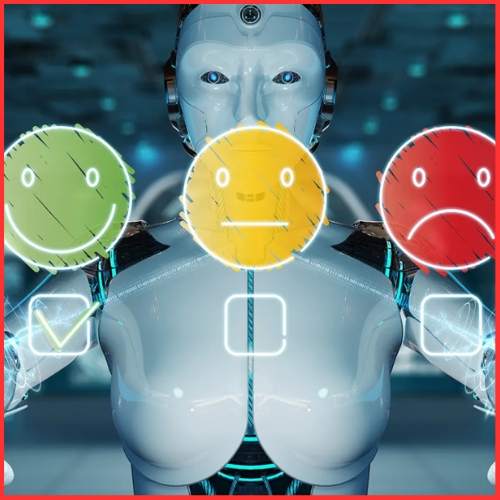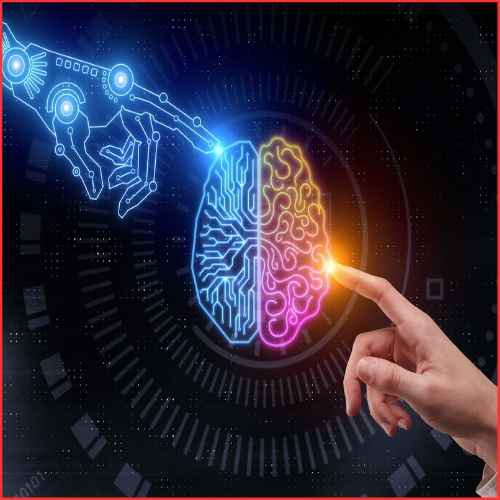After bolstering Masayoshi Son’s multibillion-dollar war chest with the blockbuster offering of UK chip designer Arm, SoftBank is looking for deals in artificial intelligence, including a prospective investment in OpenAI.
After Arm’s initial public offering is complete, Son, the founder and CEO of the Japanese conglomerate, is reportedly planning to invest tens of billions in artificial intelligence.
One of the possibilities SoftBank is contemplating for a few of these partnerships is OpenAI, which is supported by Microsoft. These sources said that SoftBank might also try to work out a wide strategic alliance with the creator of ChatGPT.
They continued by saying that SoftBank is also considering a number of alternatives to OpenAI, including making large investments in the company that makes ChatGPT’s direct competitors. According to them, the business also made a preliminary offer to purchase UK-based AI chipmaker Graphcore.
“We do not comment on rumours,” SoftBank stated. OpenAI chose not to respond. SoftBank’s offer was not accepted by Graphcore, the company said.
Analysts estimate that Thursday’s Arm IPO, which brought in roughly $5 billion in revenues, will increase SoftBank‘s cash reserves to as much as $65 billion, including its own cash and the use of its remaining 90% stake in Arm as collateral for loans.
Son, who declared in June that he was a “heavy user” of ChatGPT, has grown close to OpenAI’s CEO Sam Altman. Altman has been referred to as “one of the key people on Earth” by Son, who claims to speak with him almost daily.
With OpenAI, SoftBank’s mobile division already has a business relationship that enables it to provide chatbot deployment services to Japanese businesses. The service is built on Microsoft’s Azure computing platform, which serves as OpenAI’s exclusive cloud provider. According to persons familiar with the situation, Microsoft made a multiyear investment of $10 billion in OpenAI earlier this year.
Additionally, the SoftBank mobile subsidiary has stated that it plans to create its own ChatGPT-like product in Japan.
People in Son’s inner circle claim that his deal-making zeal has recently recovered significantly, culminating in the successful tech investor declaring in June that he was returning to “offence mode.”
Son was in a self-described “defensive mode” during the pandemic and the tech slowdown in 2022, during which fresh dealmaking was severely restricted and the company started working to strengthen its cash position. According to those familiar with Son’s thinking, after focusing on Arm for several months in the lead-up to its IPO, its successful listing has freed him up to restart dealmaking with newfound vigour.
Son has larger aspirations, namely to make his Japanese technology conglomerate a legitimate rival in the AI market, including for the processors that enable the technology.
Right now, Nvidia has been the big AI winner. This year, the Silicon Valley-based company’s industry domination in AI processors increased its market value to above $1 trillion. In 2017, SoftBank purchased a share in the chipmaker, which it later sold.
During this month’s IPO roadshow, Arm highlighted AI as a major component of its growth narrative for investors as it seeks to stray from its primary smartphone market and increase its footprint in cloud computing.
Analysts claim that compared to Nvidia, Arm has a significantly lower impact on the development of huge language models, which is the technology that underpins ChatGPT.
Following Arm IPO, SoftBank seeks OpenAI tie-up as Son plans deal spree
Written by- Aakansha
After bolstering Masayoshi Son’s multibillion-dollar war chest with the blockbuster offering of UK chip designer Arm, SoftBank is looking for deals in artificial intelligence, including a prospective investment in OpenAI.
After Arm’s initial public offering is complete, Son, the founder and CEO of the Japanese conglomerate, is reportedly planning to invest tens of billions in artificial intelligence.
One of the possibilities SoftBank is contemplating for a few of these partnerships is OpenAI, which is supported by Microsoft. These sources said that SoftBank might also try to work out a wide strategic alliance with the creator of ChatGPT.
They continued by saying that SoftBank is also considering a number of alternatives to OpenAI, including making large investments in the company that makes ChatGPT’s direct competitors. According to them, the business also made a preliminary offer to purchase UK-based AI chipmaker Graphcore.
“We do not comment on rumours,” SoftBank stated. OpenAI chose not to respond. SoftBank’s offer was not accepted by Graphcore, the company said.
Analysts estimate that Thursday’s Arm IPO, which brought in roughly $5 billion in revenues, will increase SoftBank’s cash reserves to as much as $65 billion, including its own cash and the use of its remaining 90% stake in Arm as collateral for loans.
Son, who declared in June that he was a “heavy user” of ChatGPT, has grown close to OpenAI’s CEO Sam Altman. Altman has been referred to as “one of the key people on Earth” by Son, who claims to speak with him almost daily.
With OpenAI, SoftBank’s mobile division already has a business relationship that enables it to provide chatbot deployment services to Japanese businesses. The service is built on Microsoft’s Azure computing platform, which serves as OpenAI’s exclusive cloud provider. According to persons familiar with the situation, Microsoft made a multiyear investment of $10 billion in OpenAI earlier this year.
Additionally, the SoftBank mobile subsidiary has stated that it plans to create its own ChatGPT-like product in Japan.
People in Son’s inner circle claim that his deal-making zeal has recently recovered significantly, culminating in the successful tech investor declaring in June that he was returning to “offence mode.”
Son was in a self-described “defensive mode” during the pandemic and the tech slowdown in 2022, during which fresh dealmaking was severely restricted and the company started working to strengthen its cash position. According to those familiar with Son’s thinking, after focusing on Arm for several months in the lead-up to its IPO, its successful listing has freed him up to restart dealmaking with newfound vigour.
Son has larger aspirations, namely to make his Japanese technology conglomerate a legitimate rival in the AI market, including for the processors that enable the technology.
Right now, Nvidia has been the big AI winner. This year, the Silicon Valley-based company’s industry domination in AI processors increased its market value to above $1 trillion. In 2017, SoftBank purchased a share in the chipmaker, which it later sold.
During this month’s IPO roadshow, Arm highlighted AI as a major component of its growth narrative for investors as it seeks to stray from its primary smartphone market and increase its footprint in cloud computing.
Analysts claim that compared to Nvidia, Arm has a significantly lower impact on the development of huge language models, which is the technology that underpins ChatGPT.














